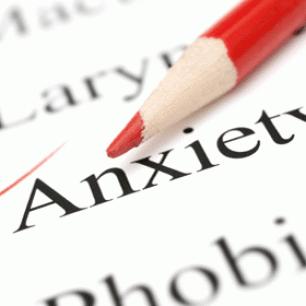The number of sudden or unnatural deaths involving the high potency anti-anxiety medication alprazolam (including Xanax) has increased dramatically since 2009, a study by the National Drug and Alcohol Research Centre at UNSW has shown.
The study looked at all sudden or unnatural deaths that presented between 1997–2012 to the Department of Forensic Medicine (DOFM) in Sydney that tested positive for alprazolam. In 1997 only three deaths involved alprazolam but by 2012 this number had jumped to 86. The majority of this increase occurred after 2009. Of the 412 deaths involving alprazolam that presented to the DOFM between 1997–2012, 82% occurred from 2009–2012. By 2012 nearly one in 20 of all sudden deaths presenting to the morgue involved the drug.
Lead author of the study Professor Shane Darke said the dramatic increase in deaths was overwhelmingly due to accidental or deliberate overdose involving at least one other drug and/or alcohol.
“We know from other studies that prescribing for alprazolam jumped by more than 1,400% over the two decades from 1990,” said Professor Darke. “But this jump in availability of the drug does not in itself explain the increase in the presence of alprazolam in sudden deaths. Rather two thirds of the deaths were due to multiple drug and or alcohol toxicity, mostly among people with known drug and alcohol problems.”
The dominance of toxicity is consistent with the demographic characteristics of those who died: 80% of the sample had a history of drug and alcohol problems; 57% were injecting drug users; and 32% were hepatitis C positive. Drugs other than alprazolam were detected in 95% of cases.
“Our research suggests that alprazolam has become popular with a group that is likely to use it along with other central nervous system depressants, such as alcohol, opioids and other benzodiazepines,” Professor Darke said. “Significantly 20 per cent of the deaths involved people who did not have a history of drug and alcohol or injecting drug use, but have been taking taking prescription opioids for chronic pain.”
On 1 February 2014 the Therapeutic Goods Administration restricted alprazolam prescribing by rescheduling it as Schedule 8 (controlled drug) for substances with known risk of dependence or abuse.
“The results of this study appear to substantiate the concerns which led to the rescheduling of alprazolam,” said Professor Darke. “We now need to track whether related deaths drop as a result of these tighter restrictions on prescribing.”
The study is published in the May issue of Drug and Alcohol Dependence.
Darke,S.,Torok, M.,Duflou, J.(2014).Circumstances and toxicology of sudden or unnatural deaths involving alprazolam. Drug and Alcohol Dependence 138 (2014) 61–66.
*Alprazolam is marketed under a number of generic and brand names. Xanax is the most well known brand.
- Ends -
The National Drug and Alcohol Research Centre at the University of New South Wales is supported by funding from the Australian Government under the Substance Misuse Prevention and Service Improvements Grants Fund.



